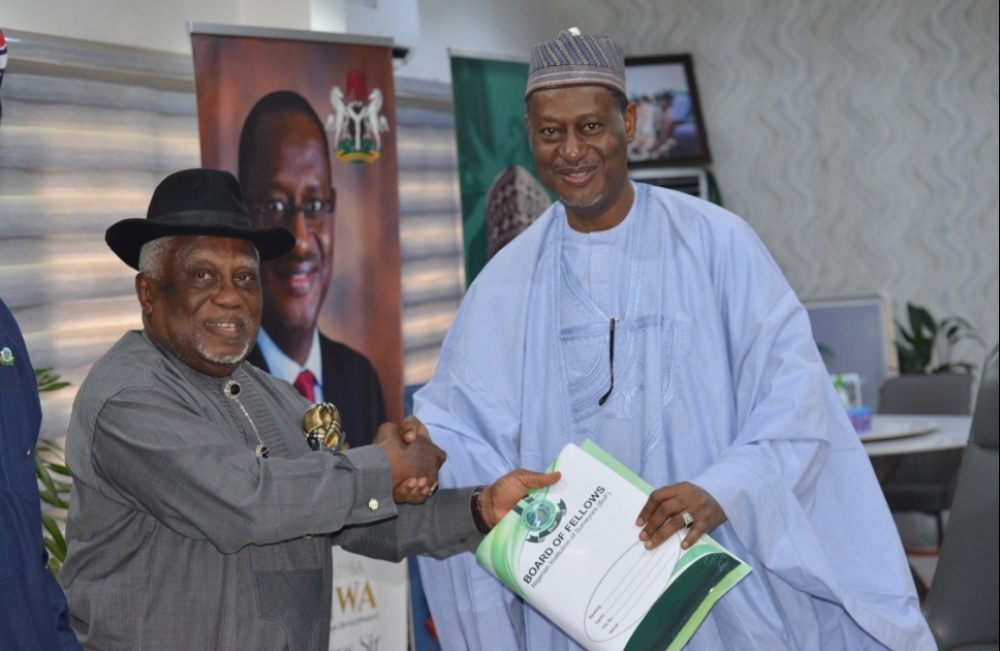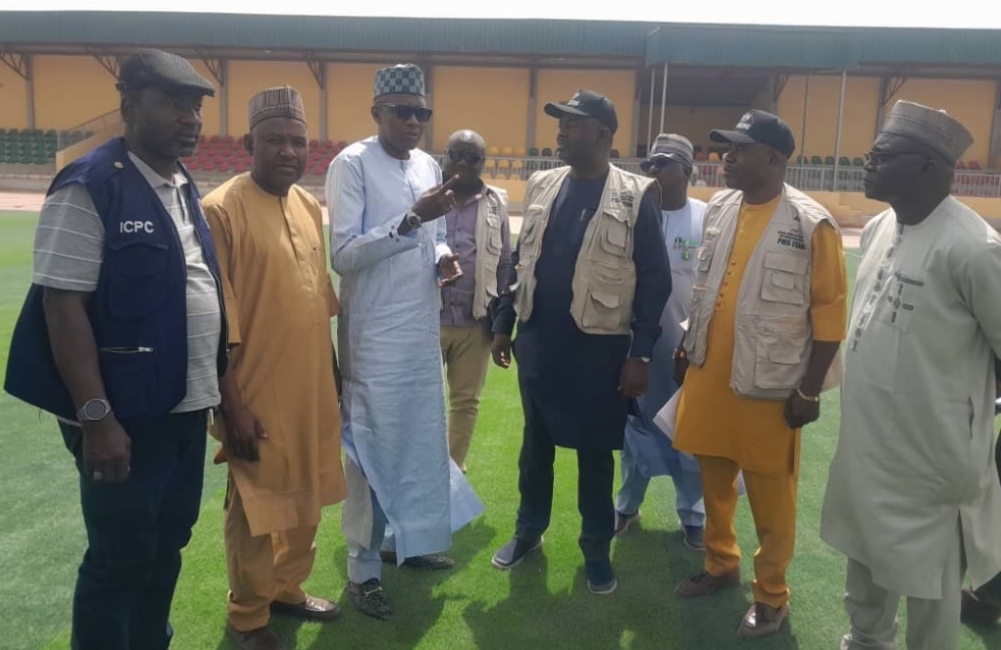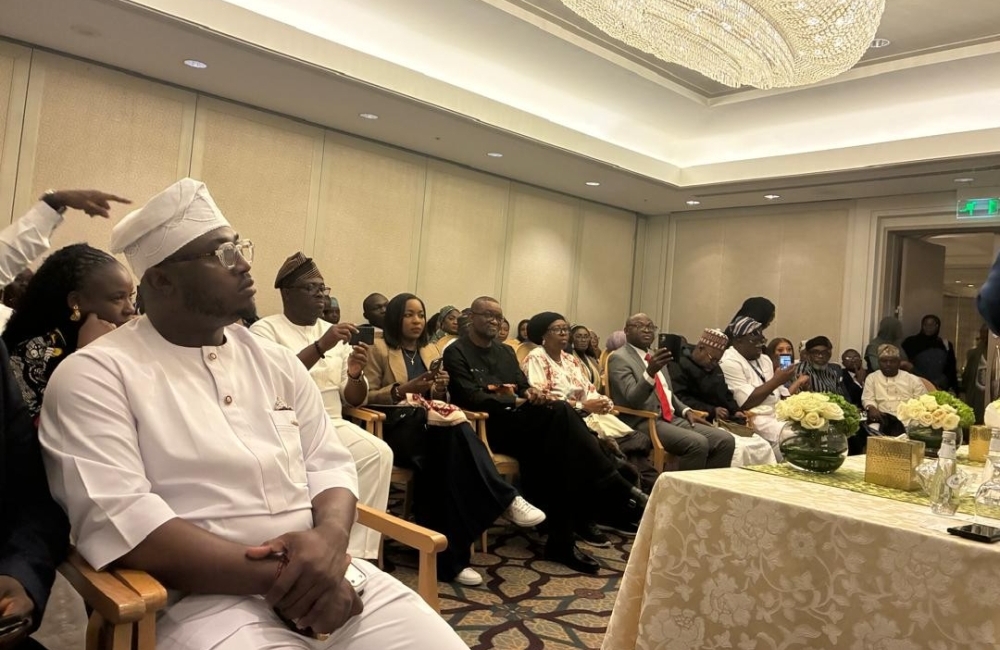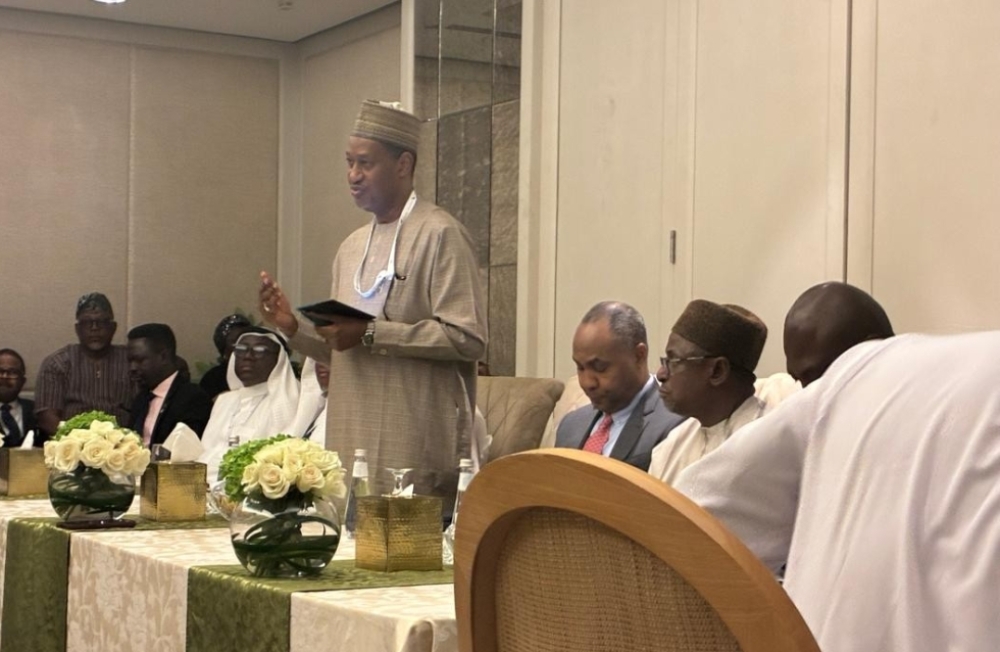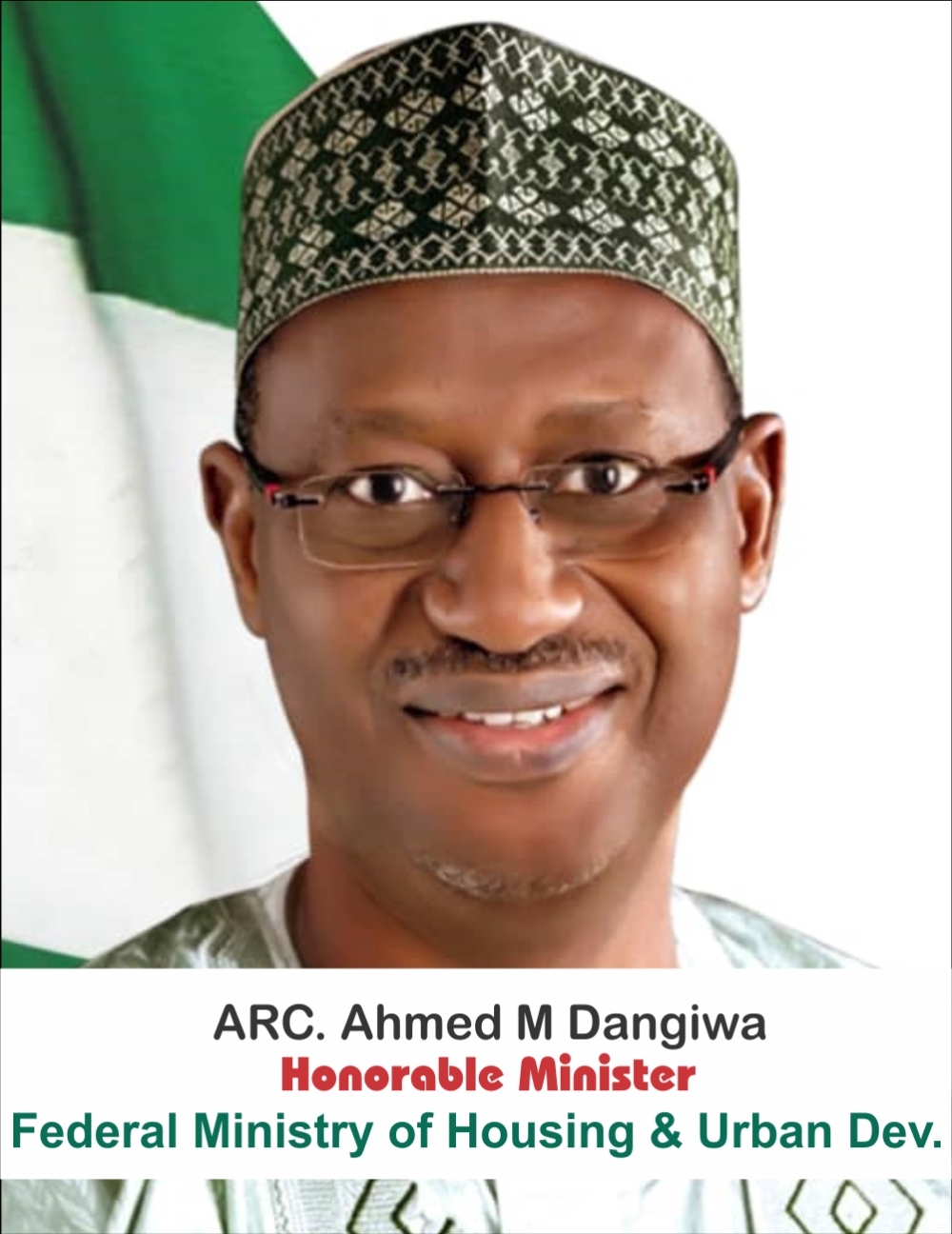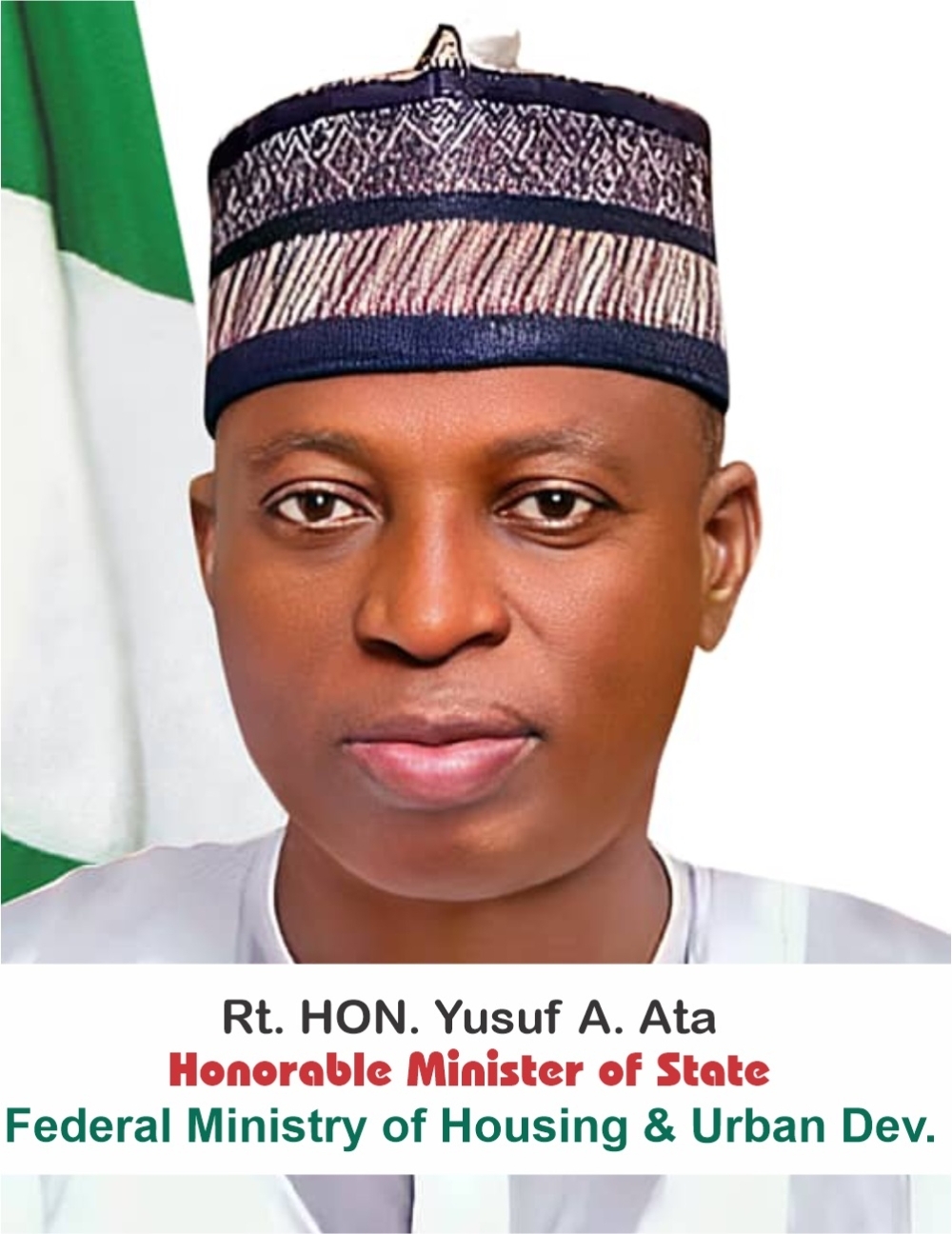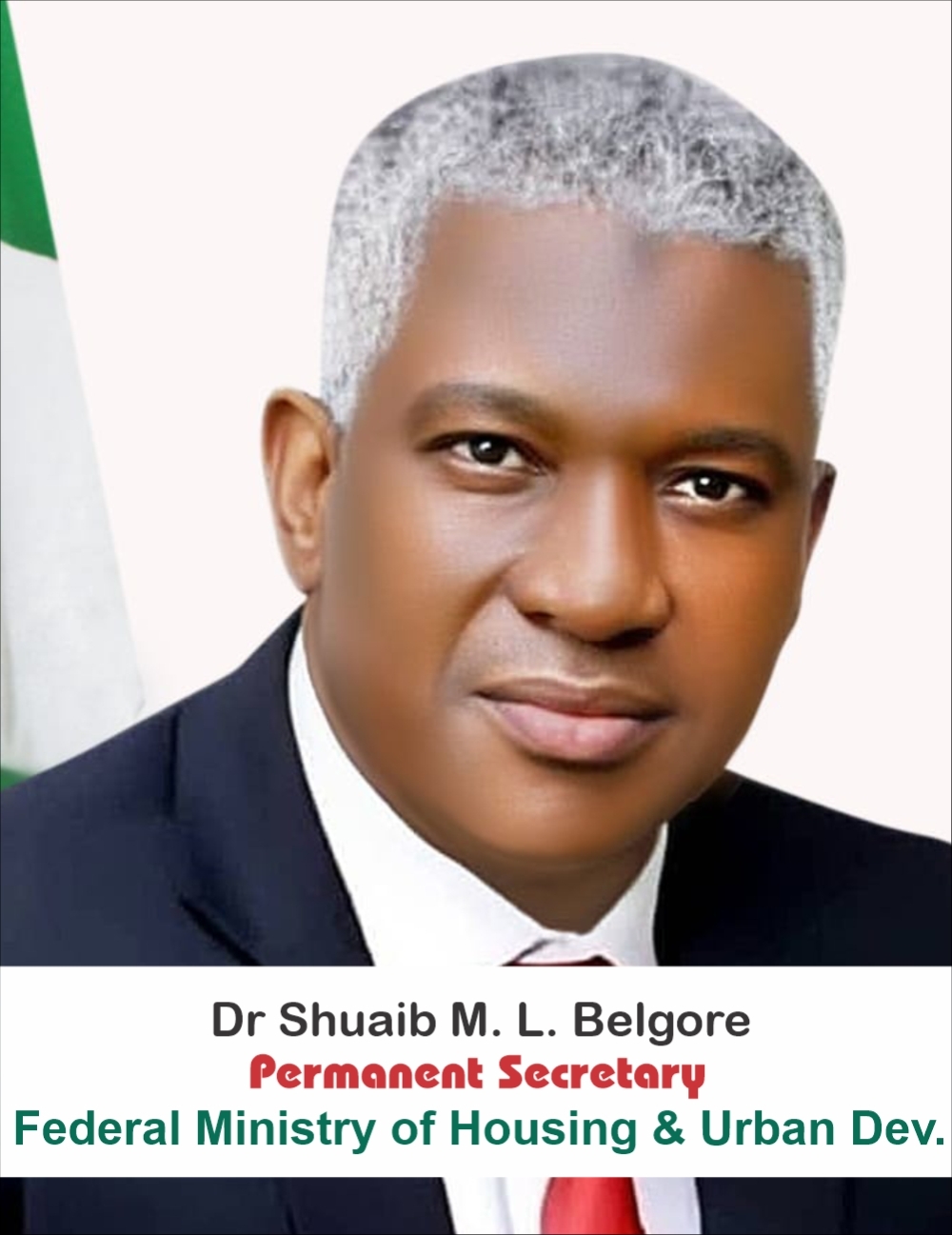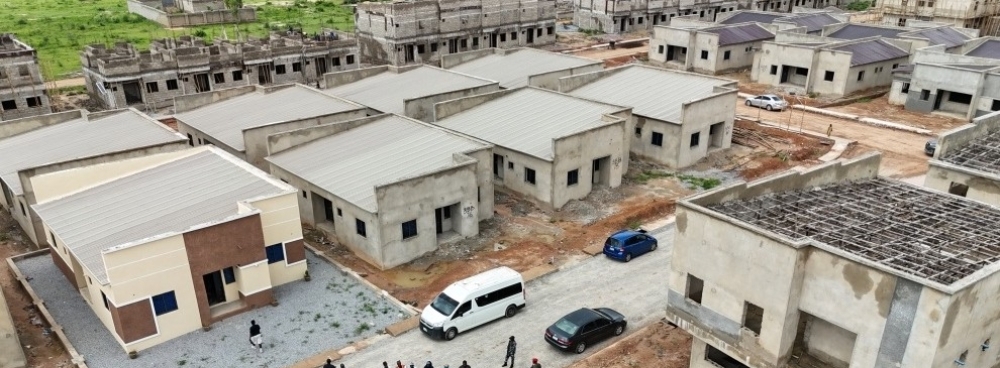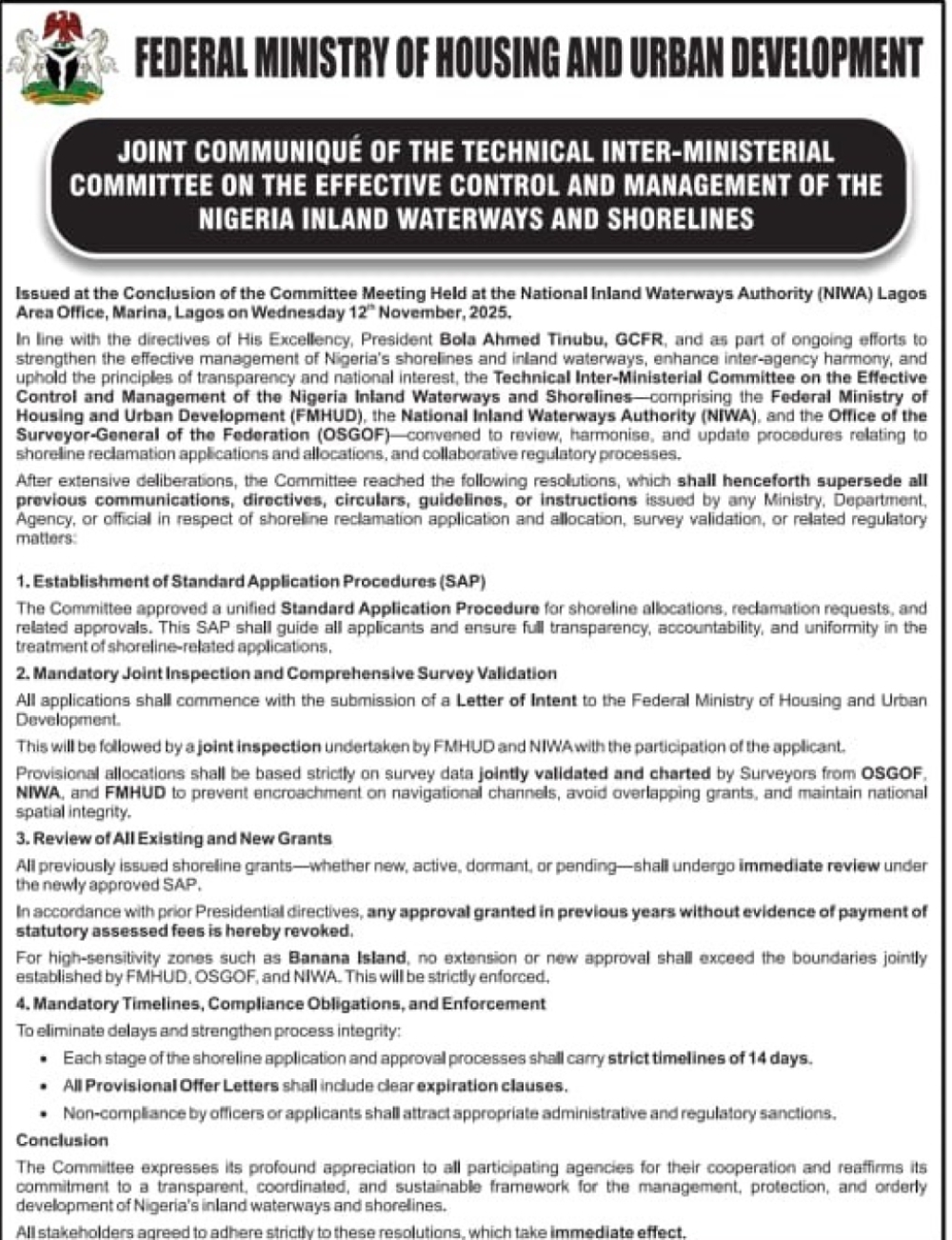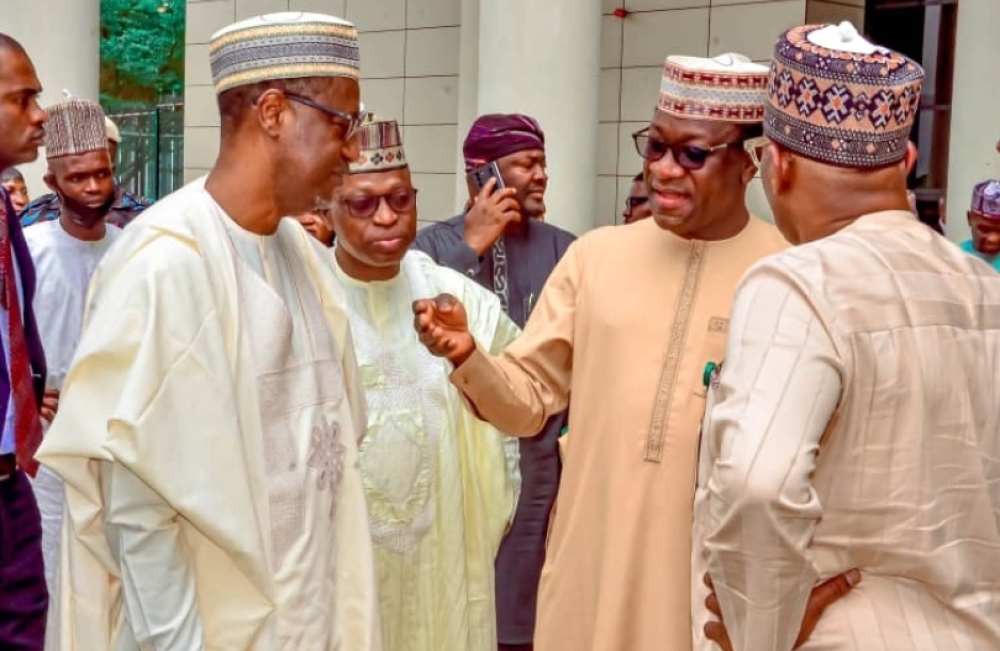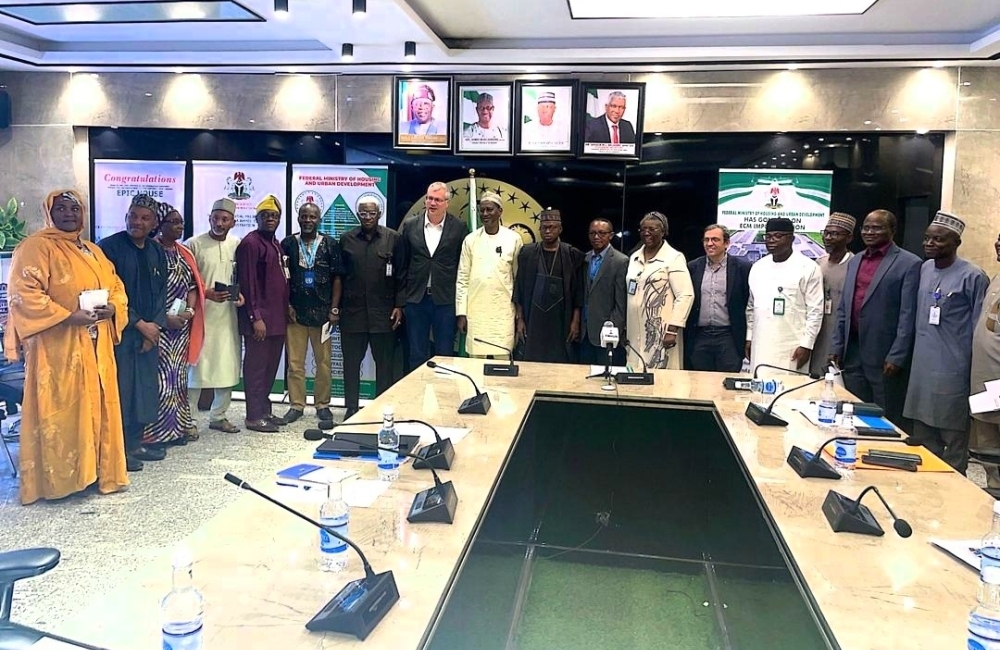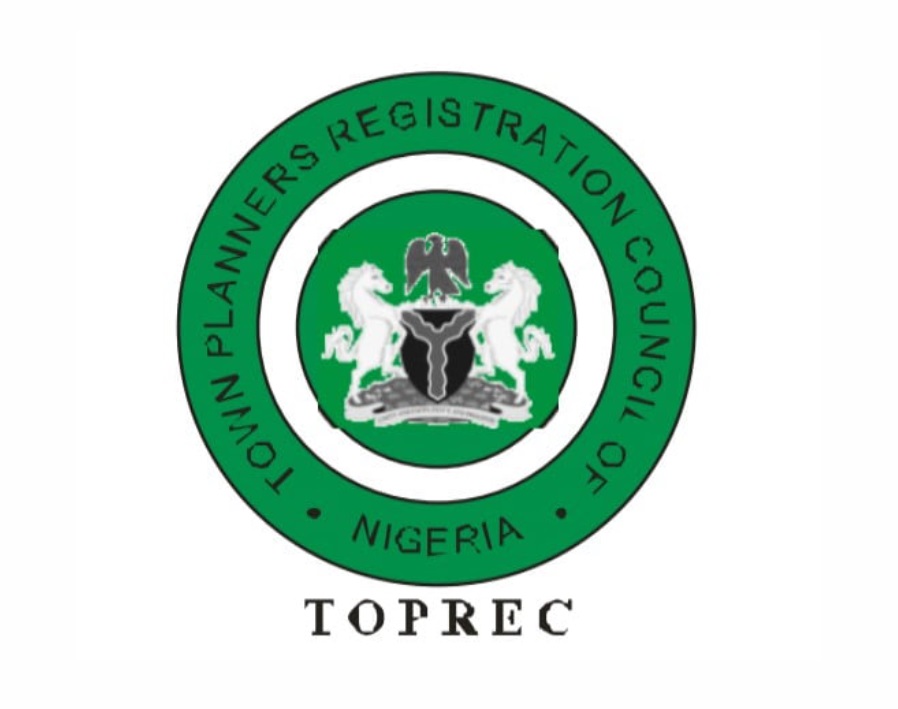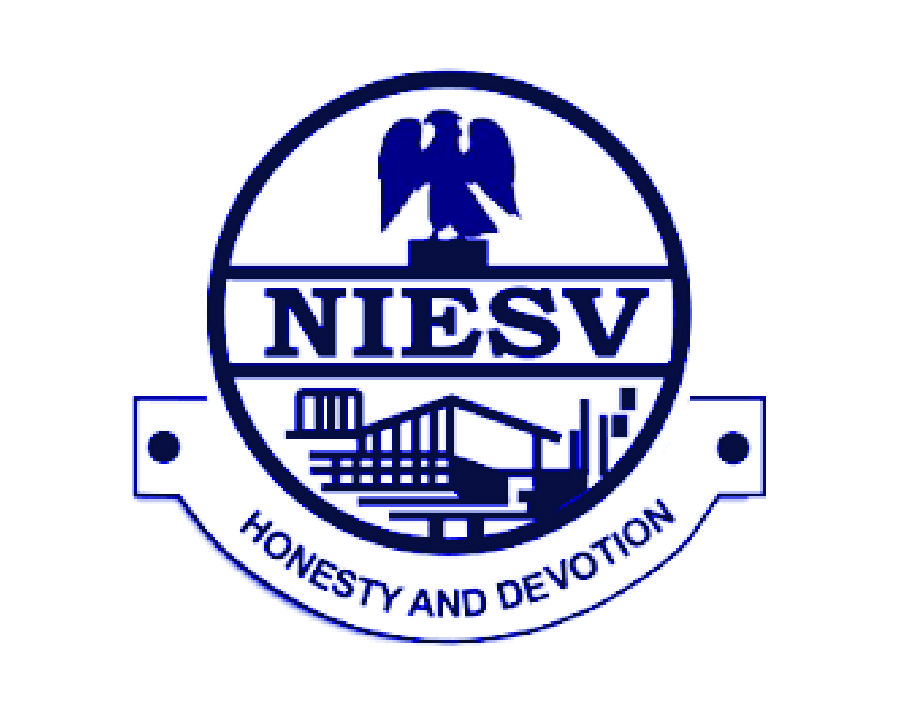KEYNOTE ADDRESS BY THE HON. MINISTER OF HOUSING AND URBAN DEVELOPMENT, ARC. AHMED MUSA DANGIWA, AT THE WORKSHOP ON THE NATIONAL LAND REGISTRATION AND DOCUMENTATION PROGRAMME (NLRDP), TRANSCORP HILTON, ABUJA, ON WEDNESDAY, MARCH 19, 2025
Protocols
1. Let me begin by expressing my heartfelt gratitude to the World Bank for their steadfast support in advancing the land administration reforms championed by His Excellency, President Bola Ahmed Tinubu, GCFR. Your commitment of time, resources, technical expertise, and knowledge has been invaluable in driving the transformative agenda of the Federal Ministry of Housing and Urban Development. We deeply appreciate your partnership and shared vision to create a historic impact in this sector.
2. I would also like to acknowledge the innovative efforts of several State Governments. Many of you have taken commendable steps to improve land management and governance within your jurisdictions. Your willingness to collaborate with the Federal Government, through the Ministry and our partners like the World Bank, demonstrates a shared commitment to addressing the critical challenges in land governance. As a federation with distinct jurisdictions, we must work together to bring order and efficiency to the land sector. Working in silos will not yield the results we all desire.
3. Now, as many of you know, Nigeria has faced longstanding challenges in land governance. These include:
• The lack of a systematic, credible, and uncontested framework to identify property ownership, interests, and locations.
• The cumbersome and inefficient property registration process, which has resulted in less than 10% of land in Nigeria being registered under the current sporadic system.
• The absence of authoritative data to support effective land administration.
• Limited access to available land records.
• The existence of the Land Use Act of 1978 (now Cap 2004) without the necessary regulations to facilitate its implementation.
• The absence of a national institution to advise the Council of State, which is constitutionally empowered to make regulations for the Act.
• Inadequate data and information for effective land valuation in both urban and rural areas; and
• The lack of essential infrastructure, such as geodetic stations, land use maps, township plans, and functional land registries.
4. Your Excellencies, distinguished guests, today’s workshop marks a significant step in the current administration’s efforts to implement long-overdue reforms. These reforms are essential to unlocking the immense potential of Nigeria’s landed assets for economic growth, wealth creation, poverty reduction, capital accumulation, and national development through the National Land Registration, Documentation, and Titling Programme.
5. Let me emphasize why this initiative is so important. Over 90% of land in Nigeria is unregistered and untitled, making it impossible for landowners to leverage their assets for economic purposes. Experts estimate that this has resulted in a dead capital exceeding $300 billion. Addressing this issue is not just about administrative efficiency; it is a critical step toward economic transformation.
6. In 2024, the Ministry conceived and developed the framework for this Programme, with the primary objective of partnering with State Governments to achieve specific goals.
7. First, we aim to register, document, and title all land parcels to unlock Nigeria’s dead capital, empowering landowners to utilize their assets for economic growth. For the Federal Government, this will increase revenue through land taxes, registration fees, and titling charges, while also enhancing economic growth by enabling landowners to use land as collateral for loans and investments. For State Governments, it will improve land governance and transparency, attract investments, and increase internally generated revenue (IGR) through land-related transactions.
8. Second, we plan to develop and launch a National Digital Land Information System (NDLIS) to modernize land administration. This system will centralize and digitize land records, reducing bureaucracy and corruption in land transactions. For the Federal Government, it will improve efficiency, enabling faster processing of land titles and registrations, while for State Governments, it will streamline processes, reduce delays, and improve access to accurate and up-to-date land information.
9. Third, we seek to increase the formalization of land transactions from less than 10% to over 50% in the next 10 years. This will expand the formal economy, enhance the capacity to track and regulate land markets, and improve access to credit for citizens and businesses. For State Governments, it will increase revenue from formal land transactions, improve land market efficiency, and empower marginalized groups, such as women and youth, through formal land ownership.
10. Fourth, we will train and deploy technically competent land registration officers nationwide. This will standardize land administration processes, reduce dependency on external consultants, and improve public service delivery. For State Governments, it will create a skilled workforce capable of handling complex land registration and titling processes, ensure faster and more efficient service delivery, and strengthen collaboration with federal agencies.
11. Let me be clear: this initiative respects the jurisdictional independence of State Governments. Our role is to establish a uniform framework that enables States to build credible, efficient, and interoperable land titling and registration systems, fostering nationwide integration and functionality.
12. To achieve these objectives, the Ministry in 2024 solicited and secured the World Bank’s collaboration on the project. Today’s event marks the culmination of a series of engagements between the Ministry and the World Bank, the most recent of which is Technical mission to Nigeria in November last year, which included visits to states such as Kano and Lagos.
13. Partnering with the World Bank gives us access to technical capacity, global best practices, proven technologies, and financial resources. Their extensive experience in supporting similar initiatives worldwide positions us to address the unique challenges of Nigeria’s land governance.
14. The World Bank’s recent technical mission provided invaluable insights into the current state of land administration in Nigeria. The findings and recommendations from this mission will serve as the foundation for the discussions and action plans emerging from this workshop.
15. One of the key topics we will discuss today is the implementation of Systematic Land Titling and Registration (SLTR). Since the inception of formal land registration in Nigeria in 1883, the processes have been conducted under a non-compulsory sporadic system, which is slow, cumbersome, opaque, and expensive for the average landowner. It is no surprise therefore that less than 10% of the entire land in our country is registered in 140 years.
16. As we discuss it is important for us to reference the work of the Presidential Technical Committee on Land Reforms (PTCLR) that was set up in 2009 so we can build upon the exhaustive and comprehensive work that they have already done. I want to believe that the PTCLR have done one of the most extensive and well researched work on effective land administration in our country. There is no need re-inventing the wheel. In search of best practices and the most practical, viable, and credible way of achieving rapid and transparent titling and registration in Nigeria, the PTCLR adopted the Systematic Land Titling and Registration (STLR). The SLTR allows a systematic identification, demarcation and adjudication of every aspect of land within a jurisdiction in the presence and concurrence of the adjoining parcel owners. I believe that there is industry wide and global acceptance that it is the best and most proven method for titling with adoption by several states already.
17. Experience show that our work must go beyond implementing STLR. There is the need for us to legitimize Systematic Land Titling and Registration under the framework of the Land Use Act (LUA). From our engagements with the PTCLR, they noted that there were challenges after the STLR was introduced. Through their intervention, it was resolved that legitimizing SLTR in Nigeria, under the legal framework of the Land Use Act requires regulations.
18. I understand that the PTCLR developed eleven regulations which included Systematic Land Titling and Registration. The regulations has provisions to declare an area as SLTR Area; defined powers and duties of SLTR Officers amongst others.
19. I also understand that the the draft resolutions were subjected to a 2-day workshop in 2013 in Abuja that was co-sponsored by the World Bank and GEMS3 with participation from all stakeholders.
20. The PTCLR briefed me that in fact four of the regulations including Systematic Land Titling and Regulation were presented to the National Economic Council (NEC) and endorsed in May 2017. These are pending presentation to the Council of State for enactment as stipulated in Section 46 (1) of the Land Use Act.
21. So, the issue of adoption and utilization of STLR is already a concluded issue. I believe, what remains now is to have the National Council of State to approve it.
22. Another critical area of discussion will be the role of Geographic Information Systems (GIS) and digital tools in modernizing land administration. These technologies have the potential to enhance accuracy, efficiency, and transparency in land registration. We must explore how to integrate these tools effectively into our systems to ensure a modern, accessible, and user-friendly land registration process.
23. Additionally, we will examine the role of Public-Private Partnerships (PPPs) in land registration. Digitized land administration presents significant investment opportunities, and we must identify successful PPP models that can be adapted to the Nigerian context. Collaboration between the public and private sectors will be essential to mobilizing the resources and expertise required for the NLRDP.
24. Traditional and community leaders also play a vital role in land governance and dispute resolution. We must develop strategies to integrate customary land tenure into formal registration systems and reduce land disputes. Their involvement will ensure that the NLRDP is inclusive and respects the rights of all Nigerians.
25. As leaders, our mandate is to solve problems. The current state of land administration in Nigeria, with less than 10% of land registered and titled, is unacceptable. Similarly, the low livability of our urban centers is a pressing concern. However, I view these challenges as opportunities to make a lasting impact. Under the Renewed Hope Agenda of Mr. President, the Ministry is committed to driving this transformation. With the support of the World Bank, we are on the cusp of making history in Nigeria.
26. Before I conclude, let me reassure the State Governments, our partner the World Bank and all stakeholders that we have a President with the political will to drive this agenda. He recognizes the critical role of land administration in economic development, the importance of building livable cities, and the transformative potential of housing development.
27. At the Ministry of Housing and Urban Development, we are fully aware of the gaps in housing and urban development and are committed to addressing them decisively.
28. I wish us all productive deliberations and look forward to the outcomes of this workshop.
29. Thank you, and may God bless the Federal Republic of Nigeria.
